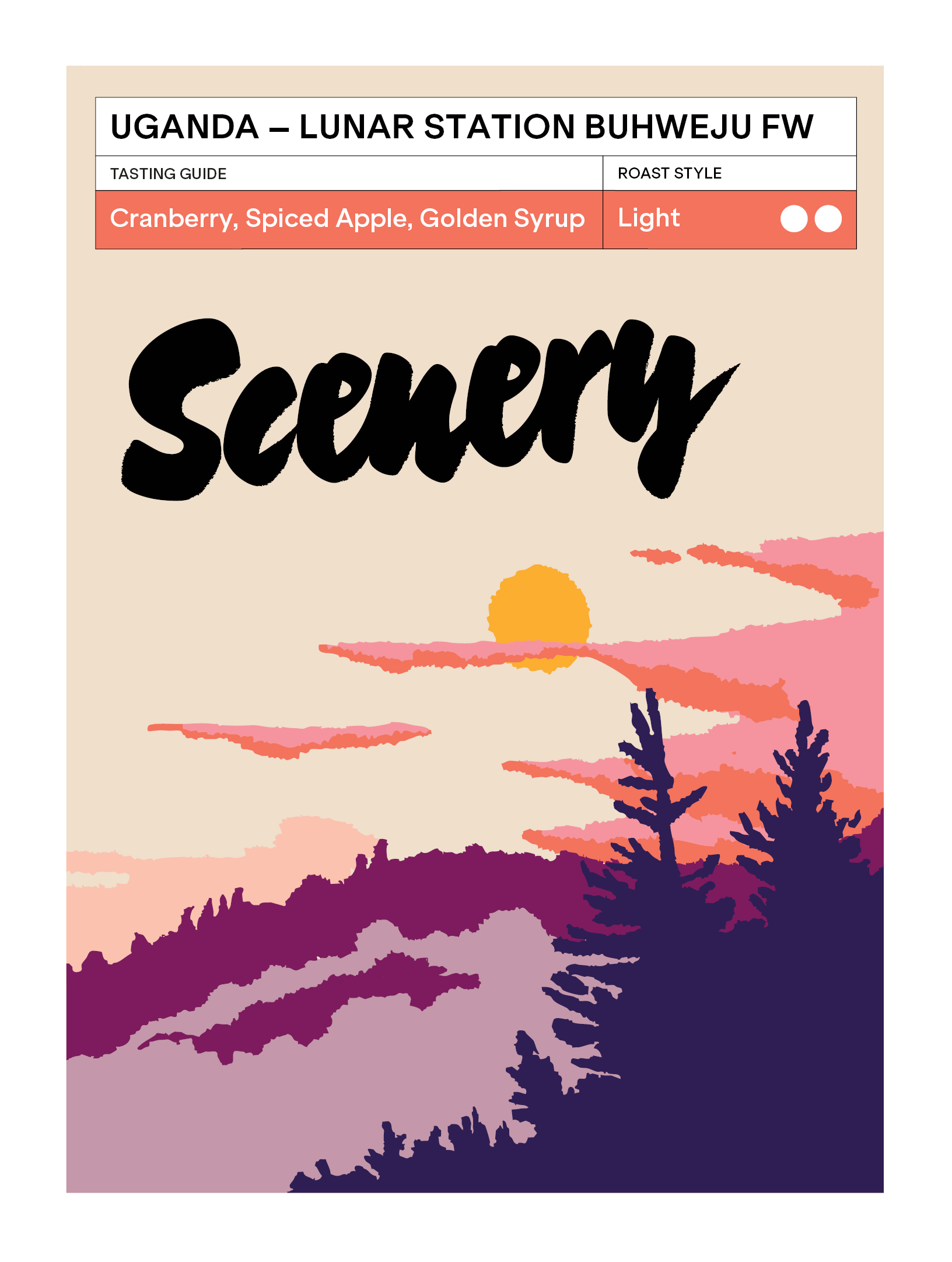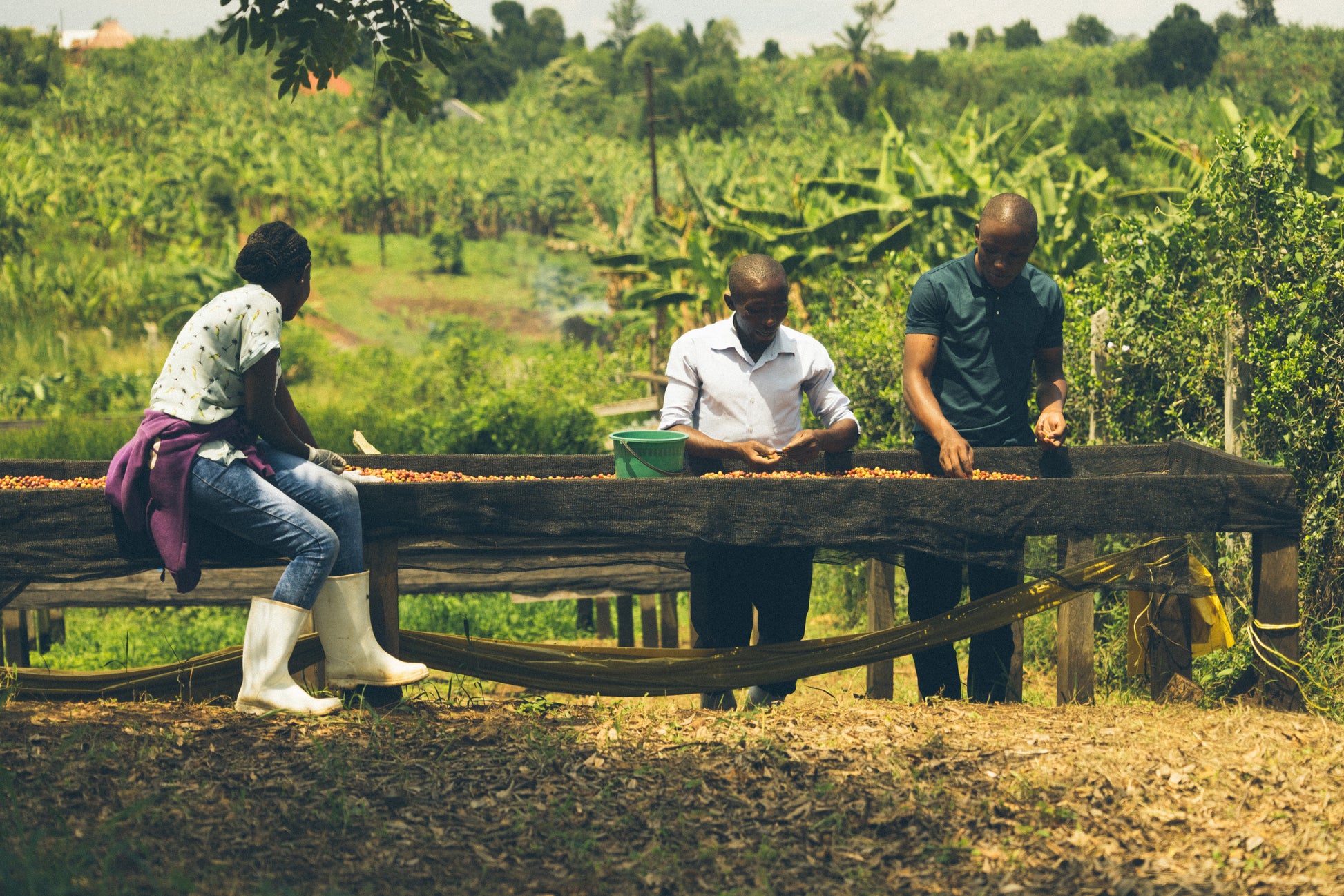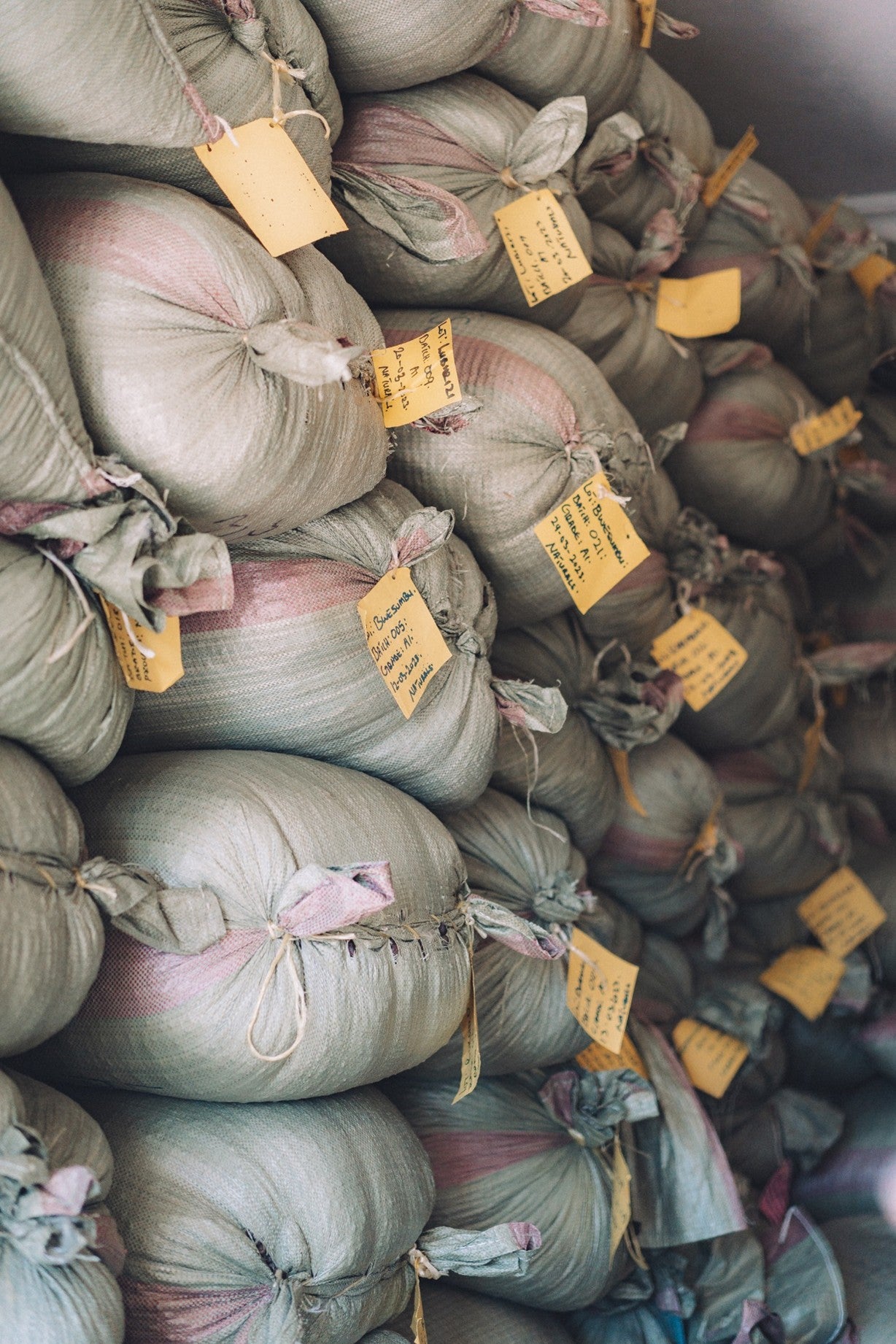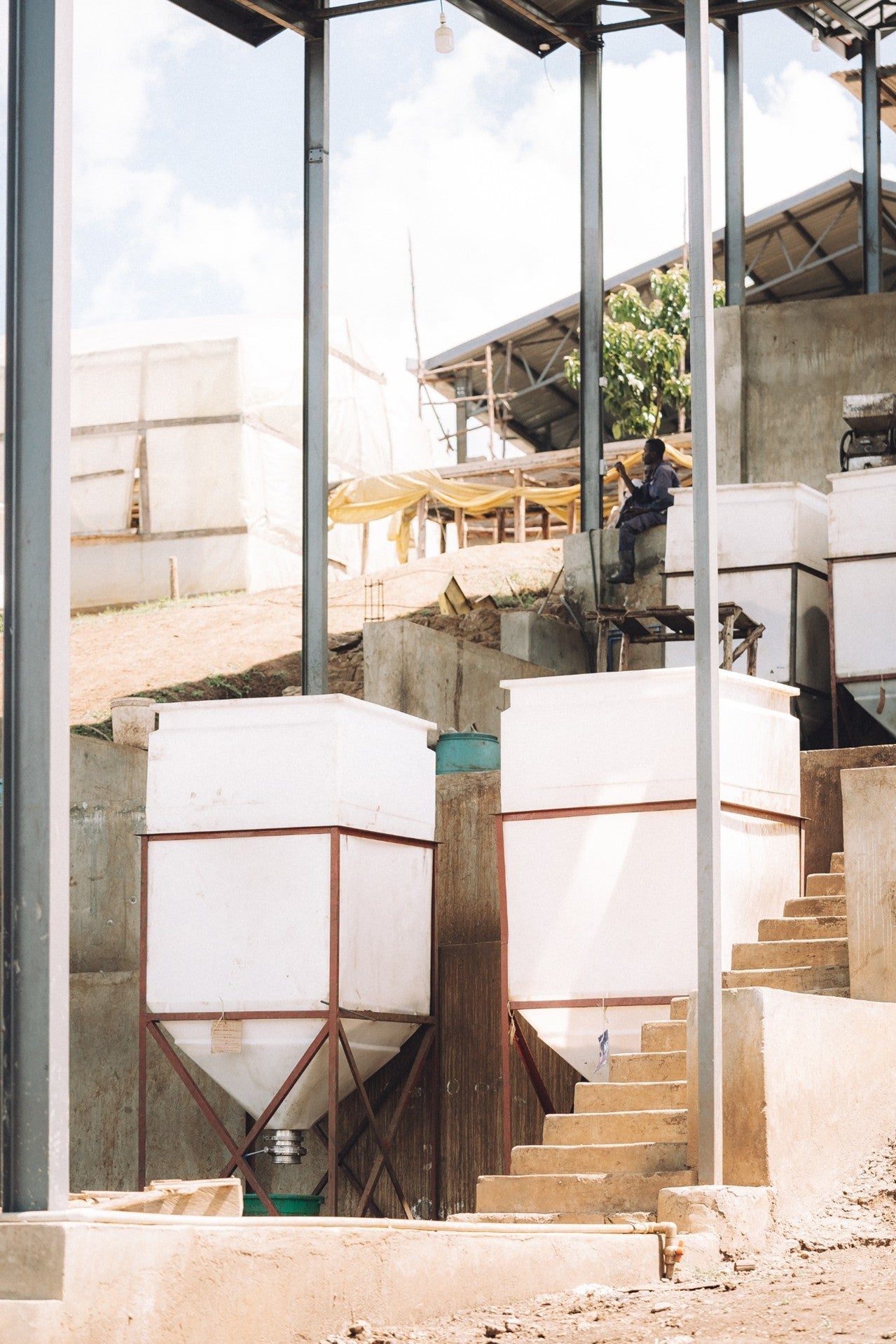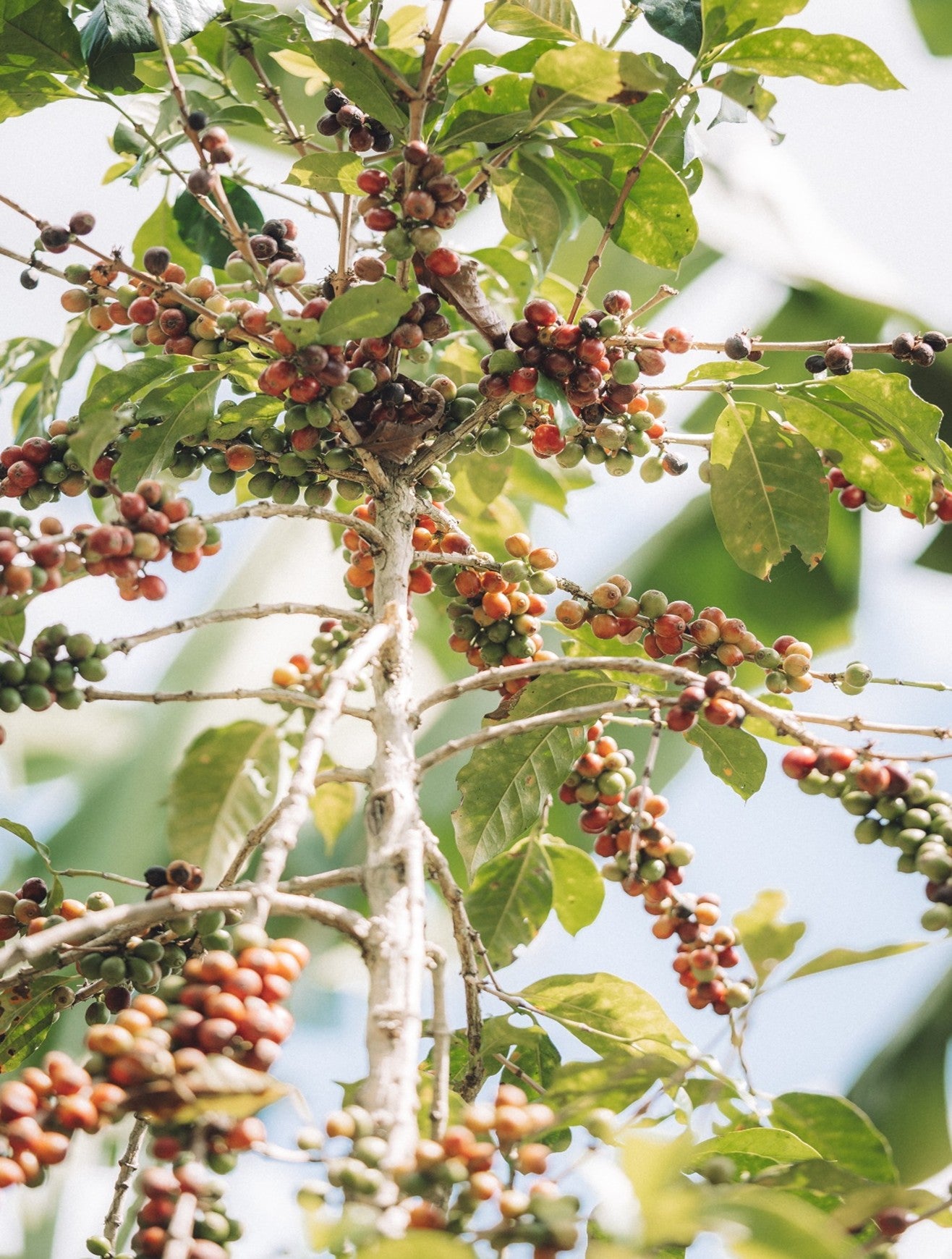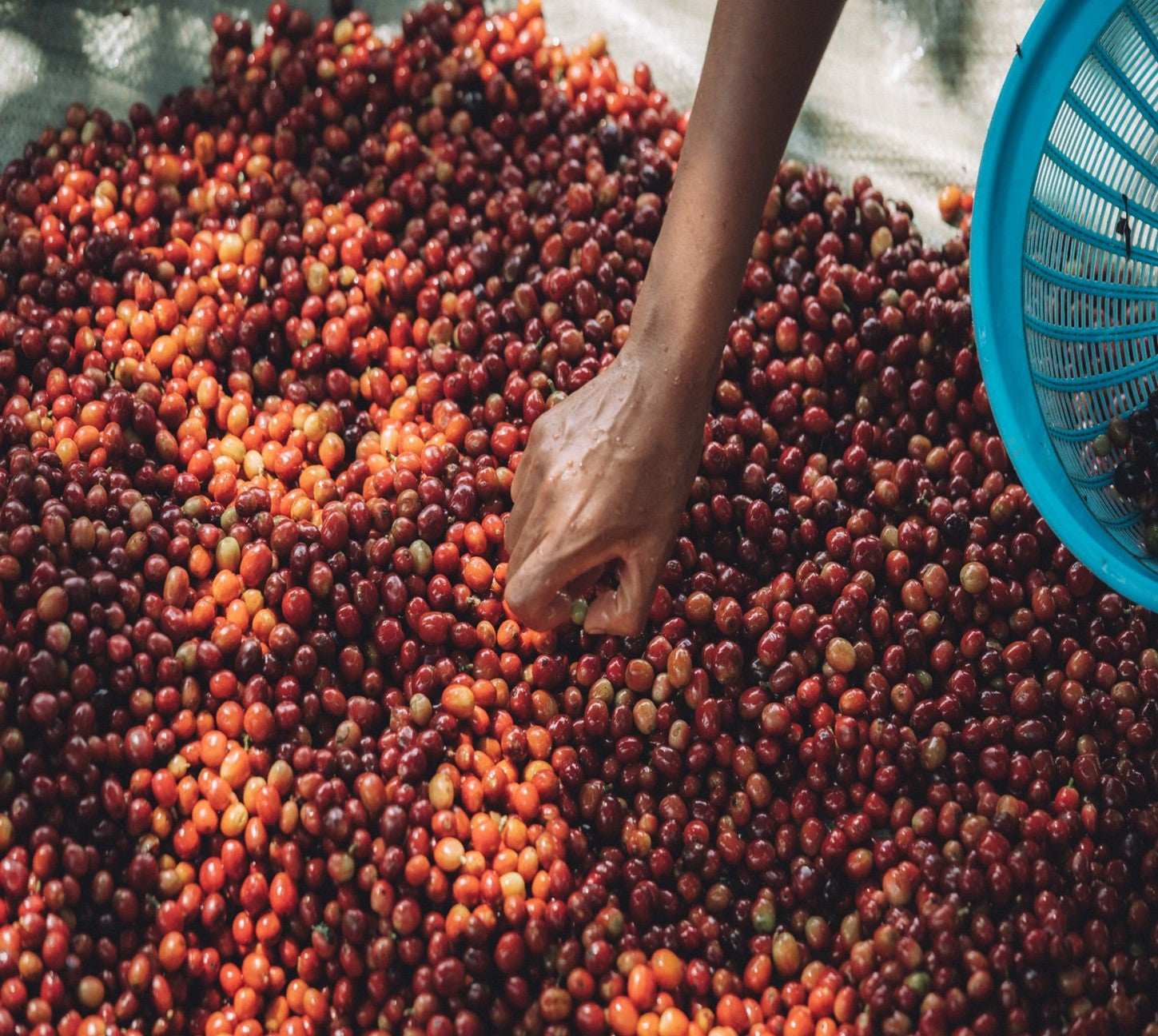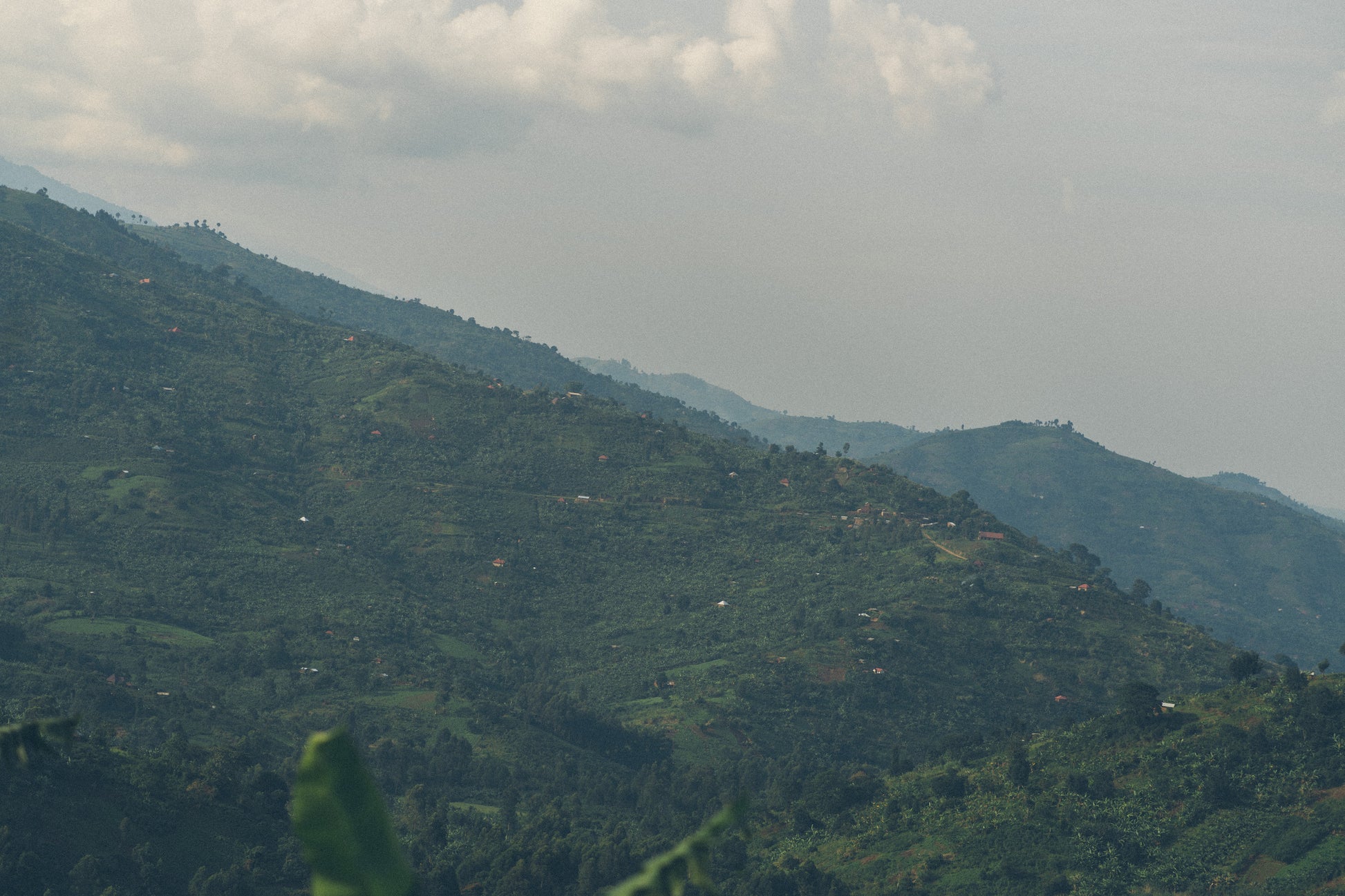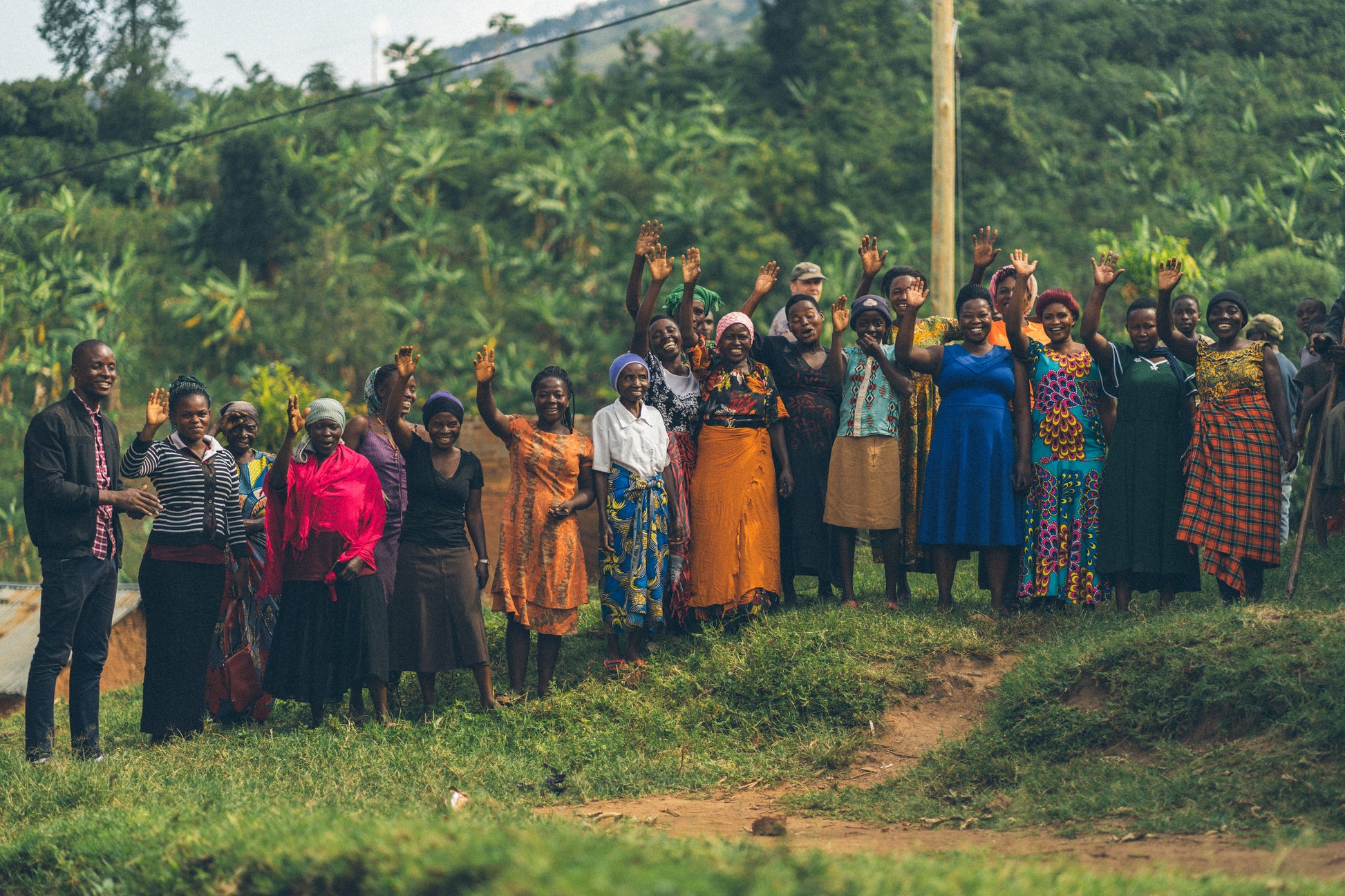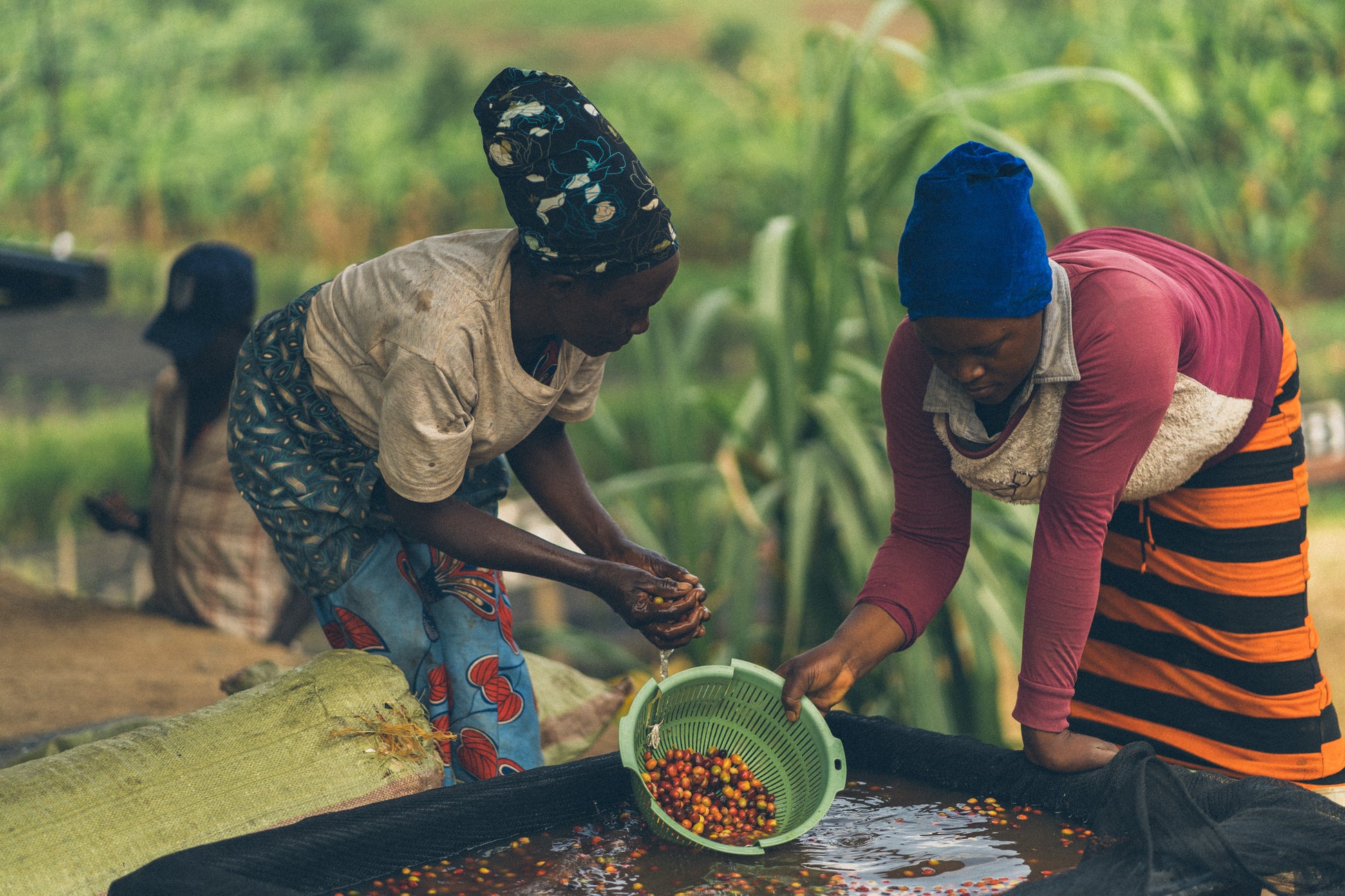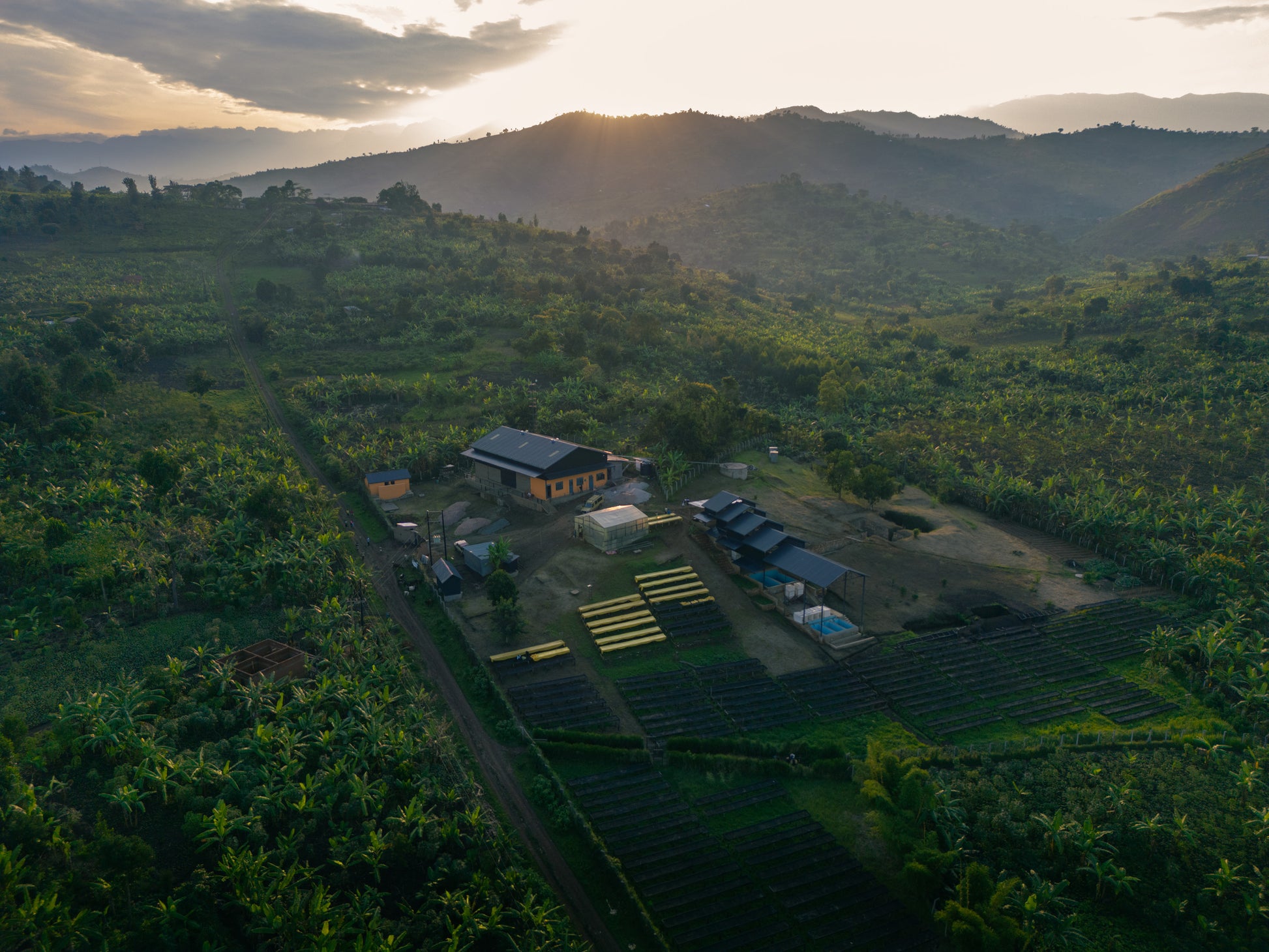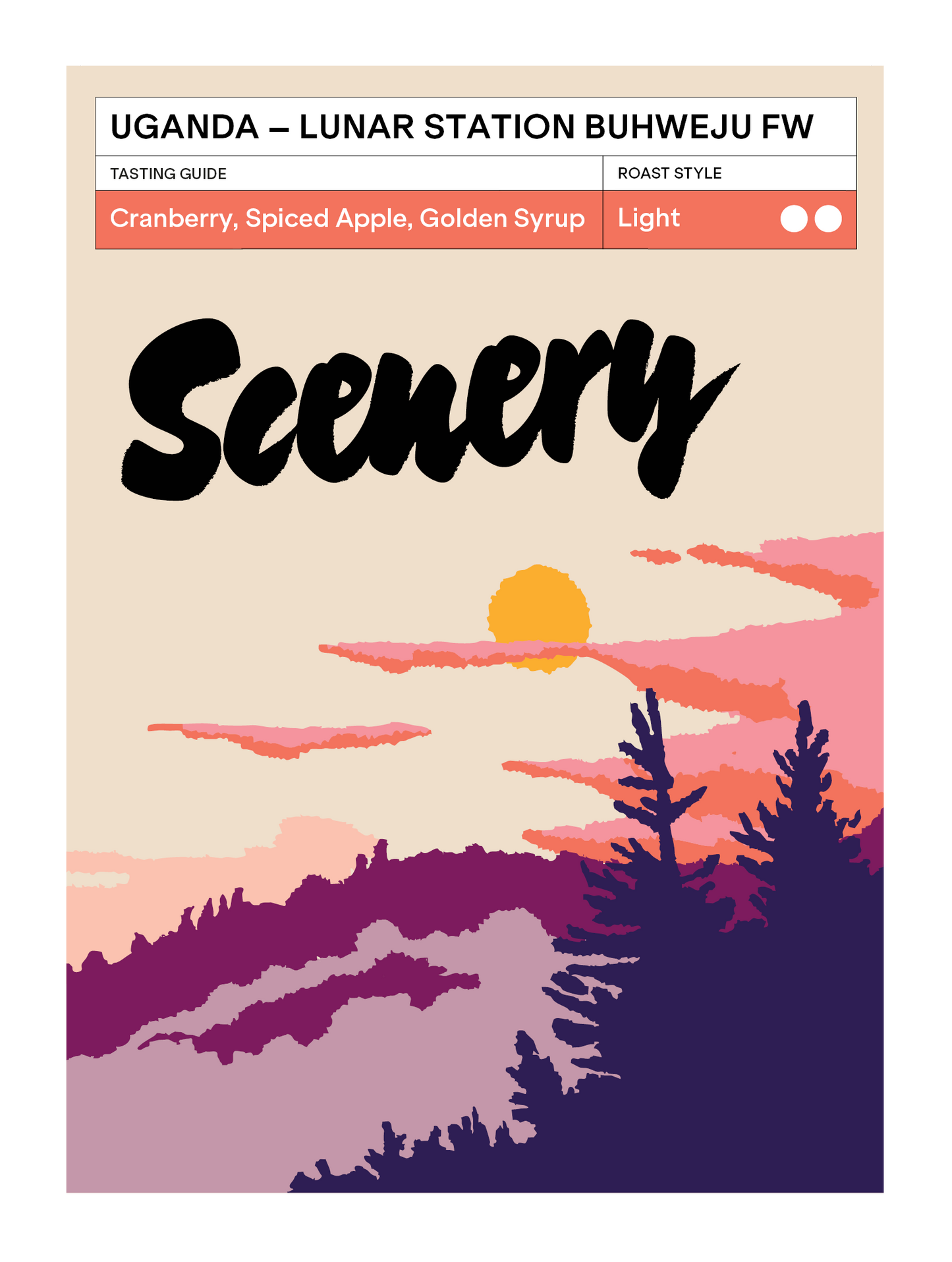
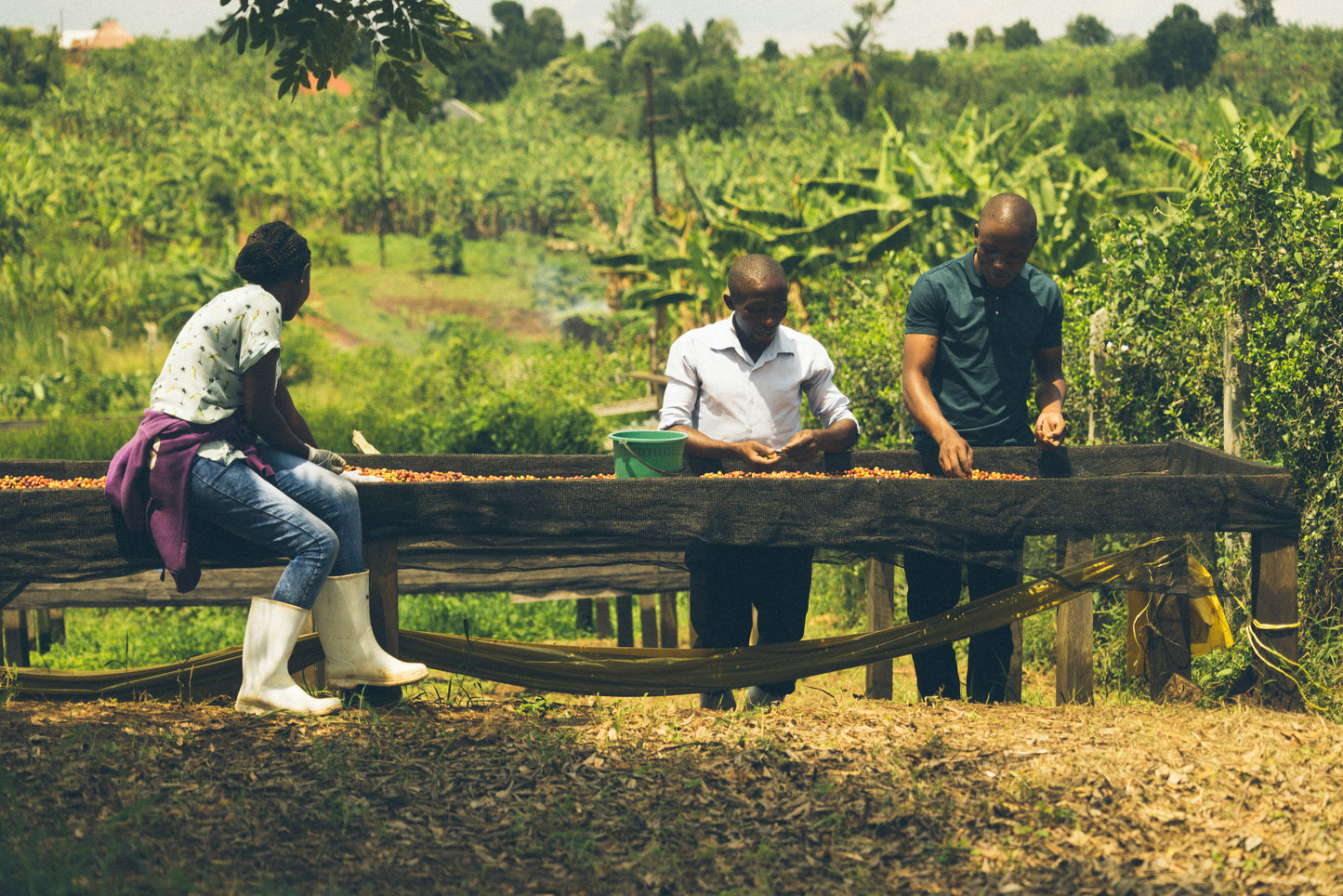
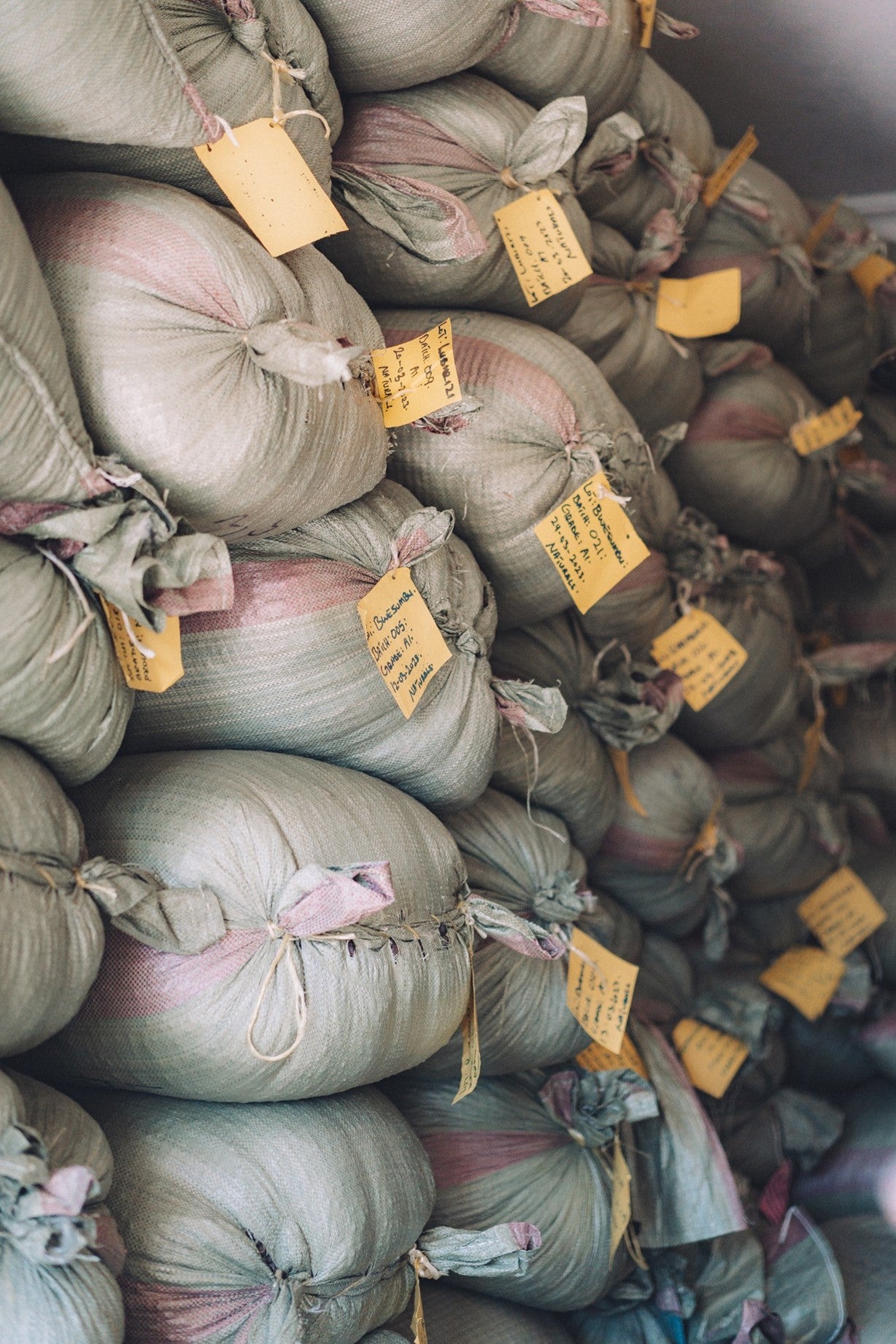
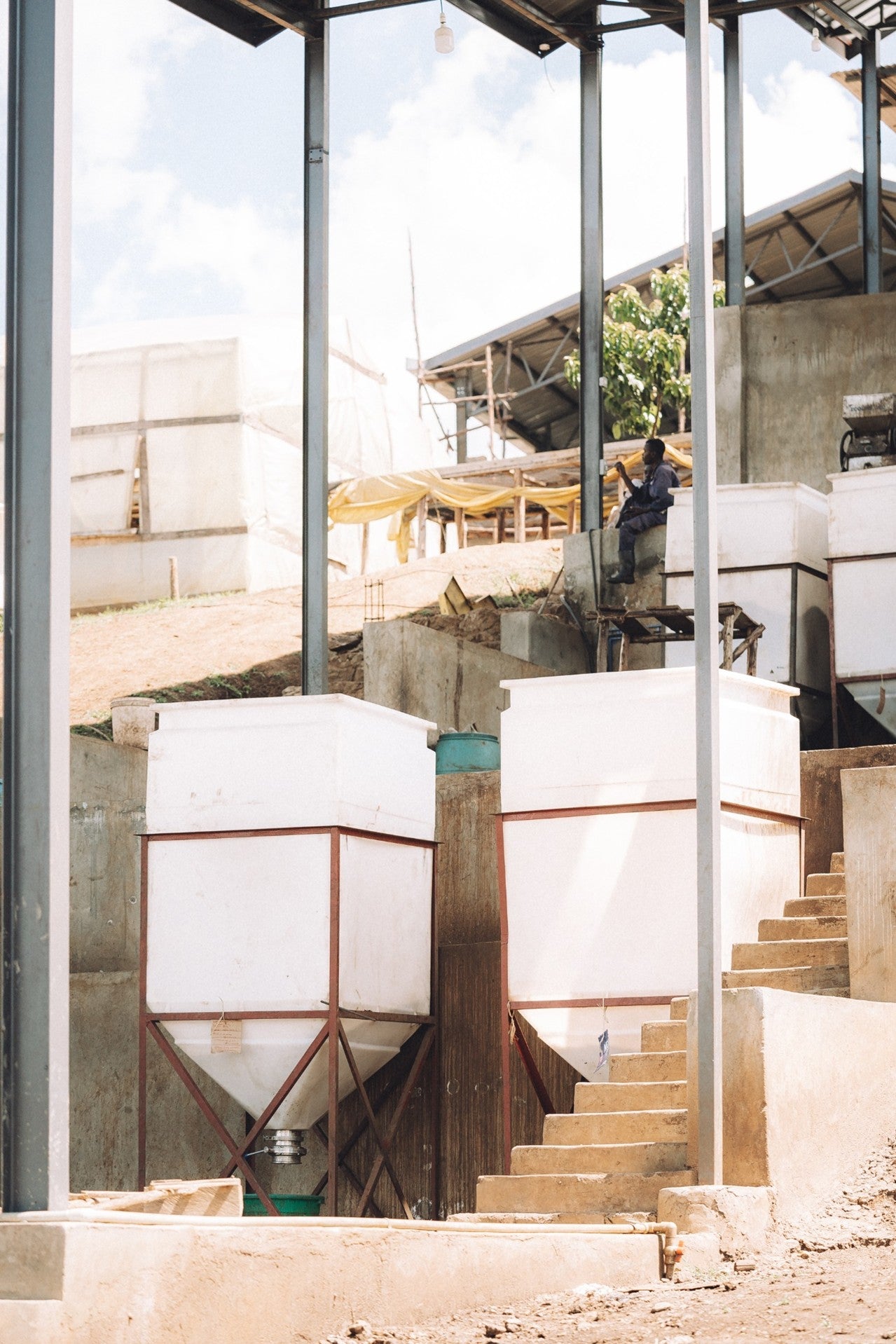
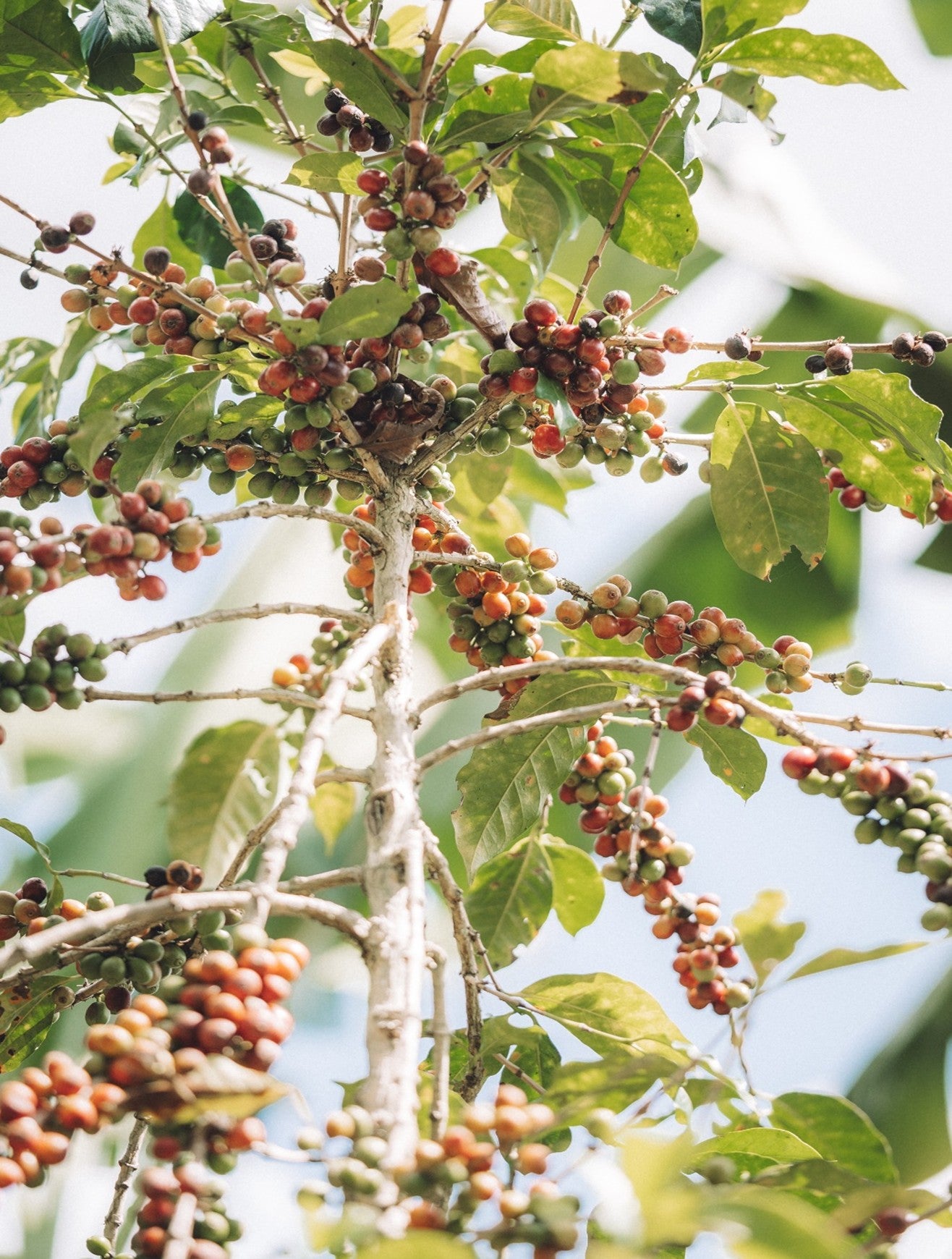
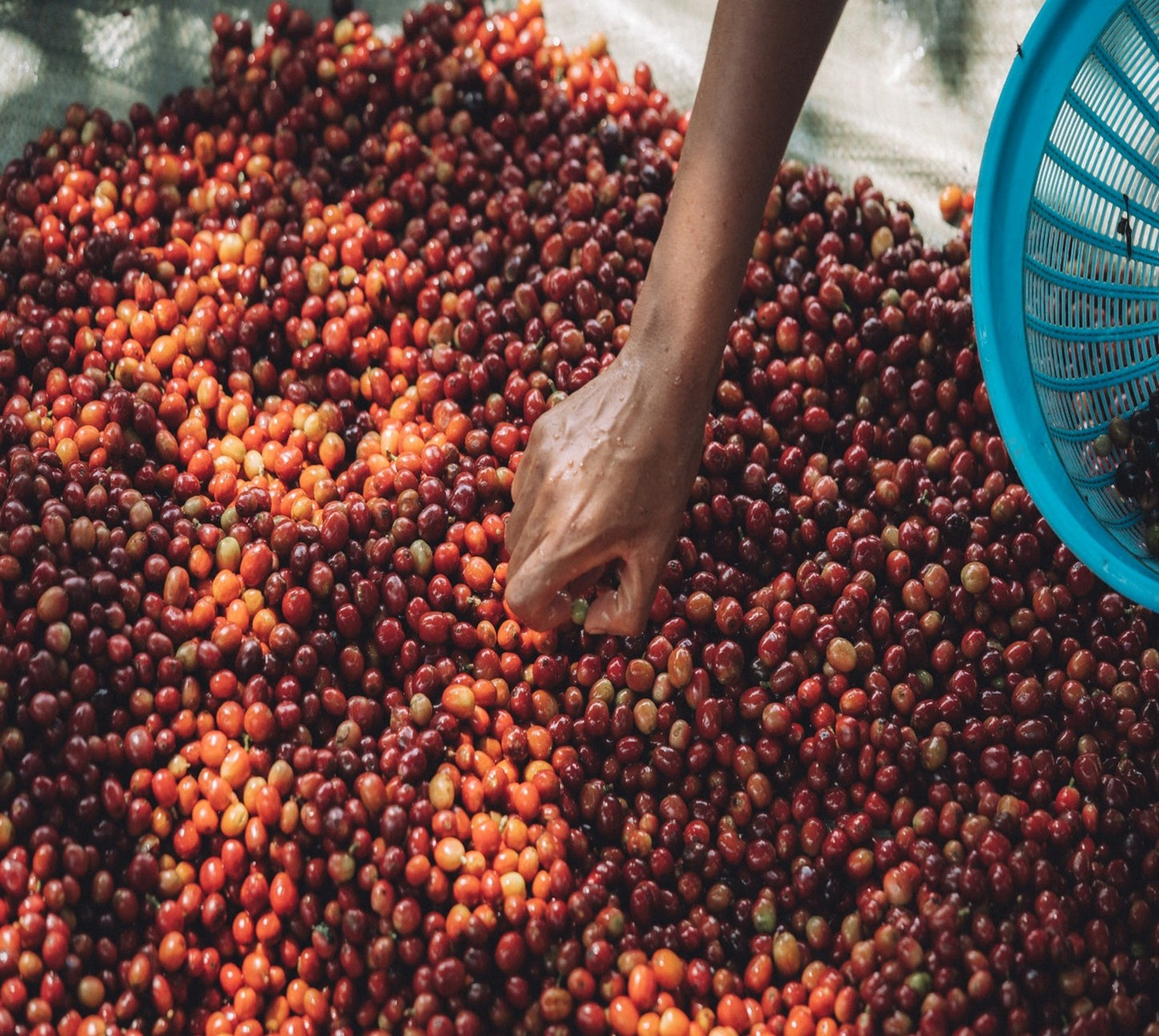
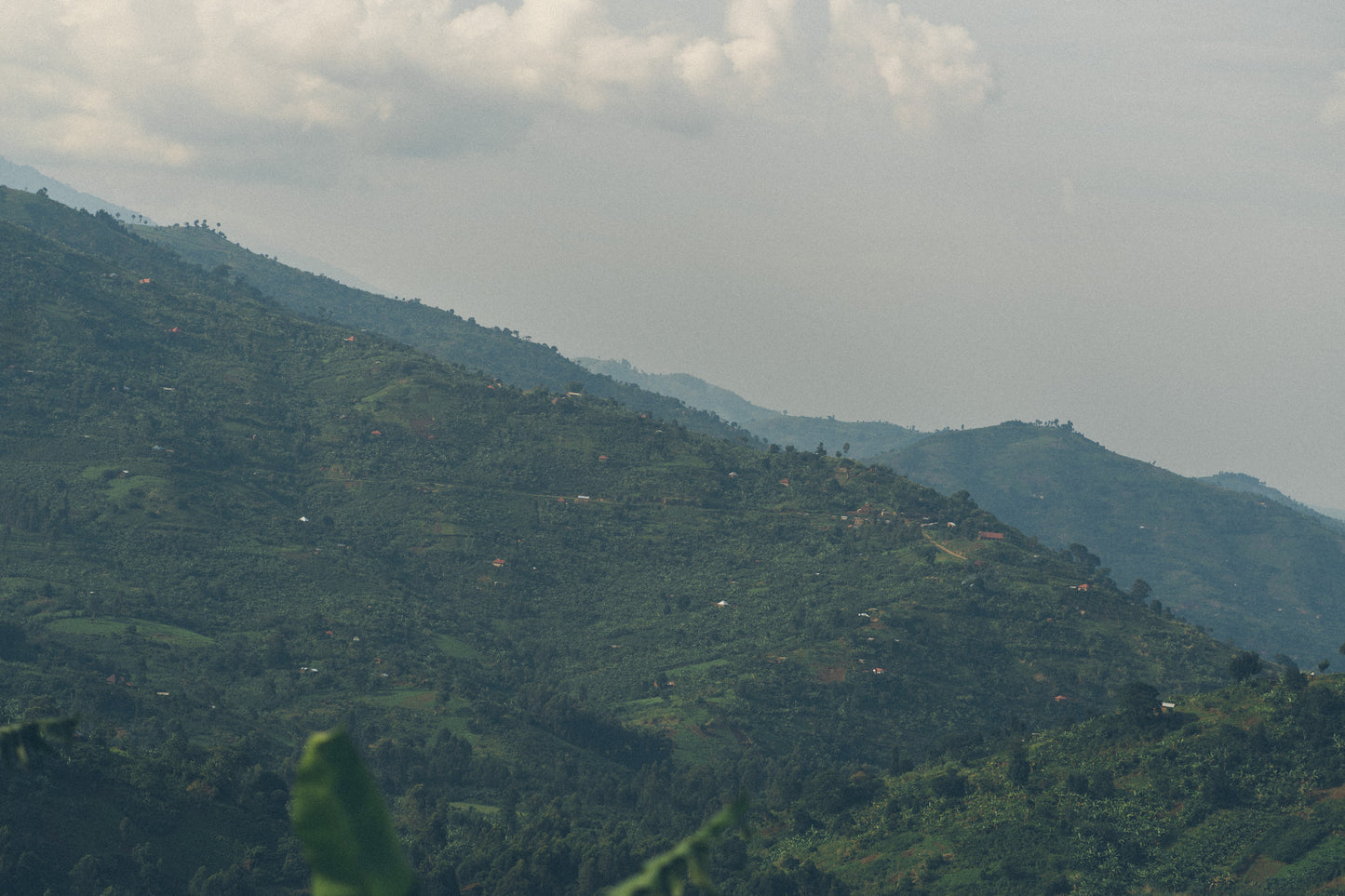
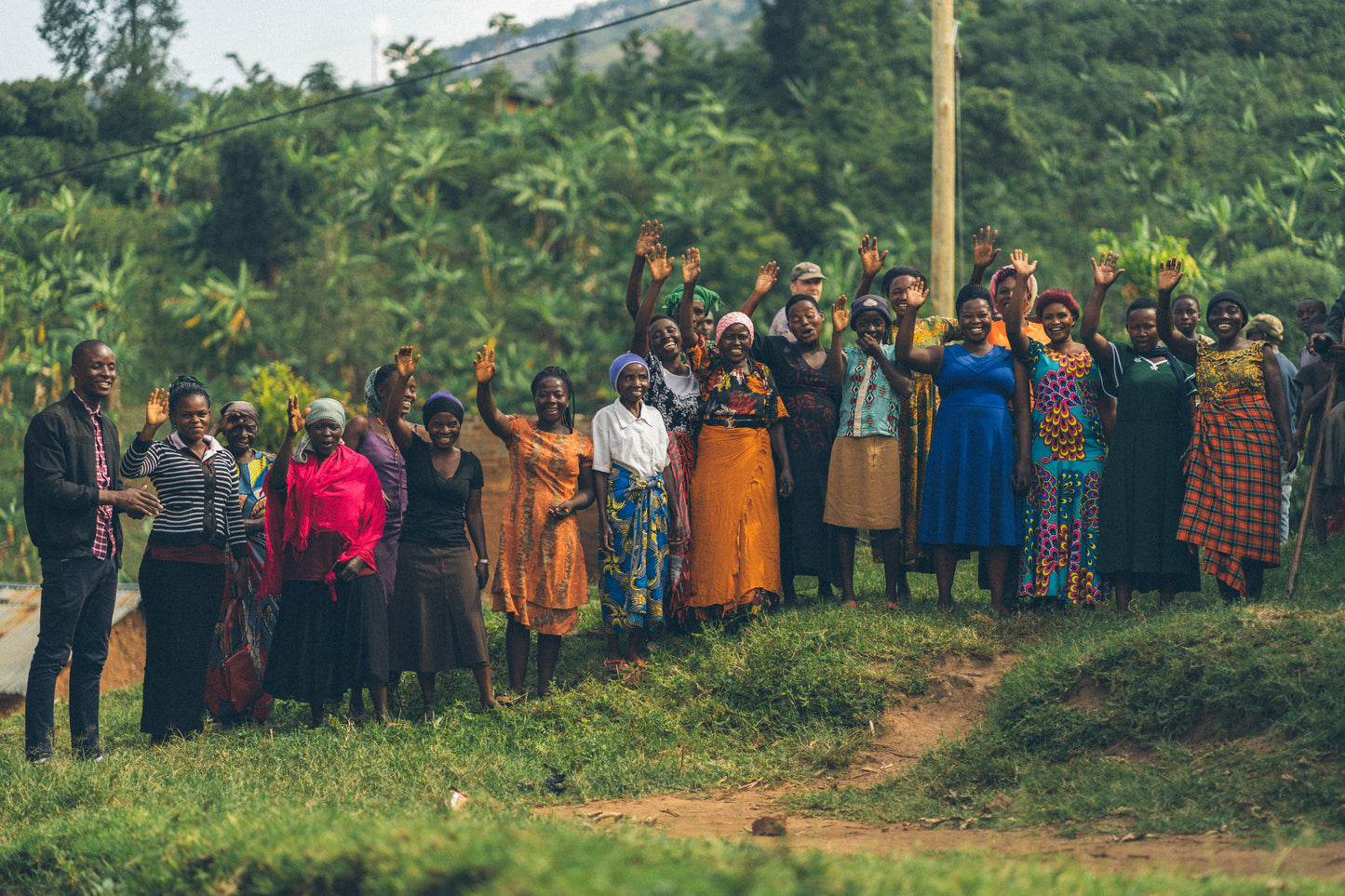
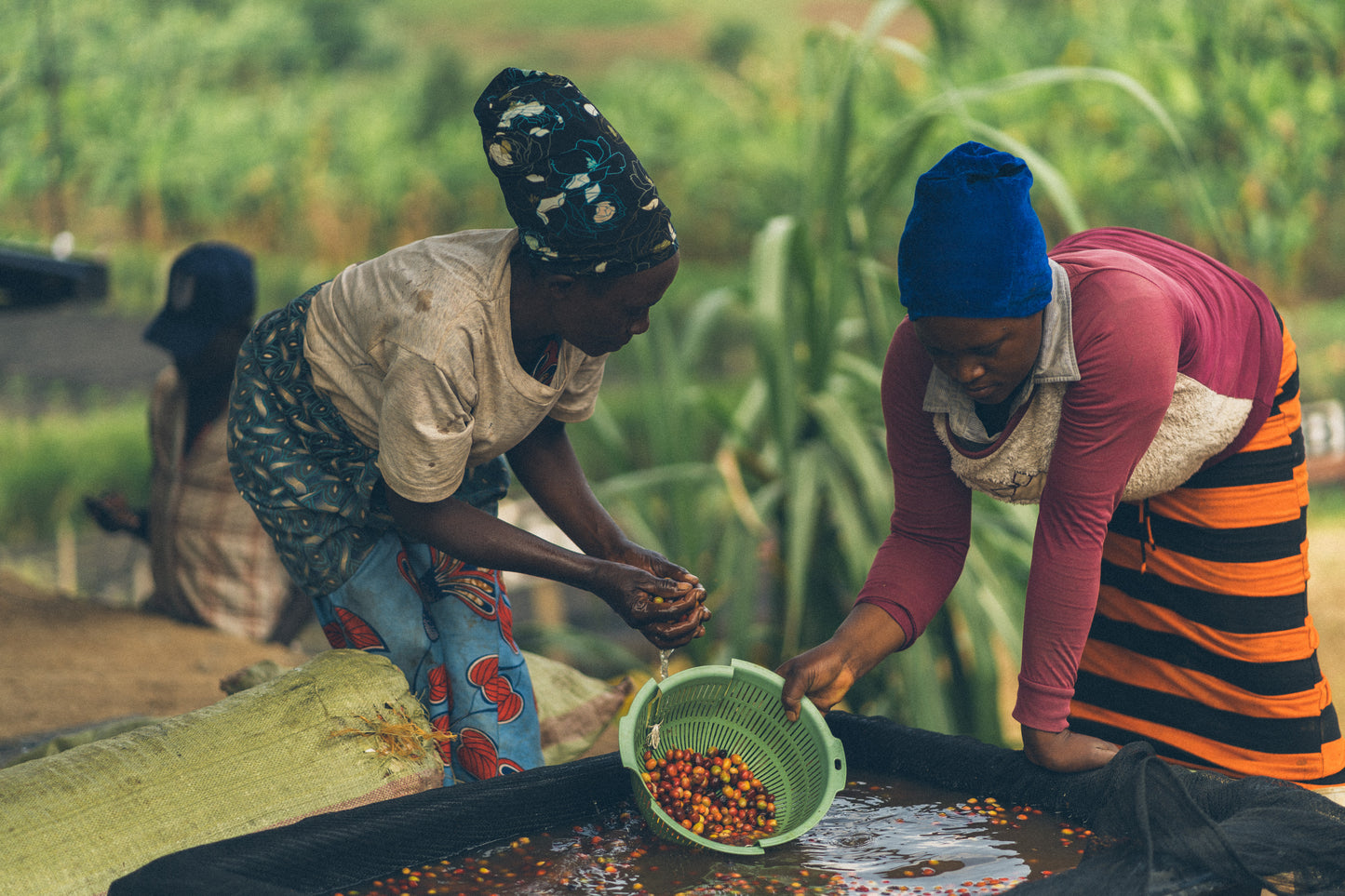
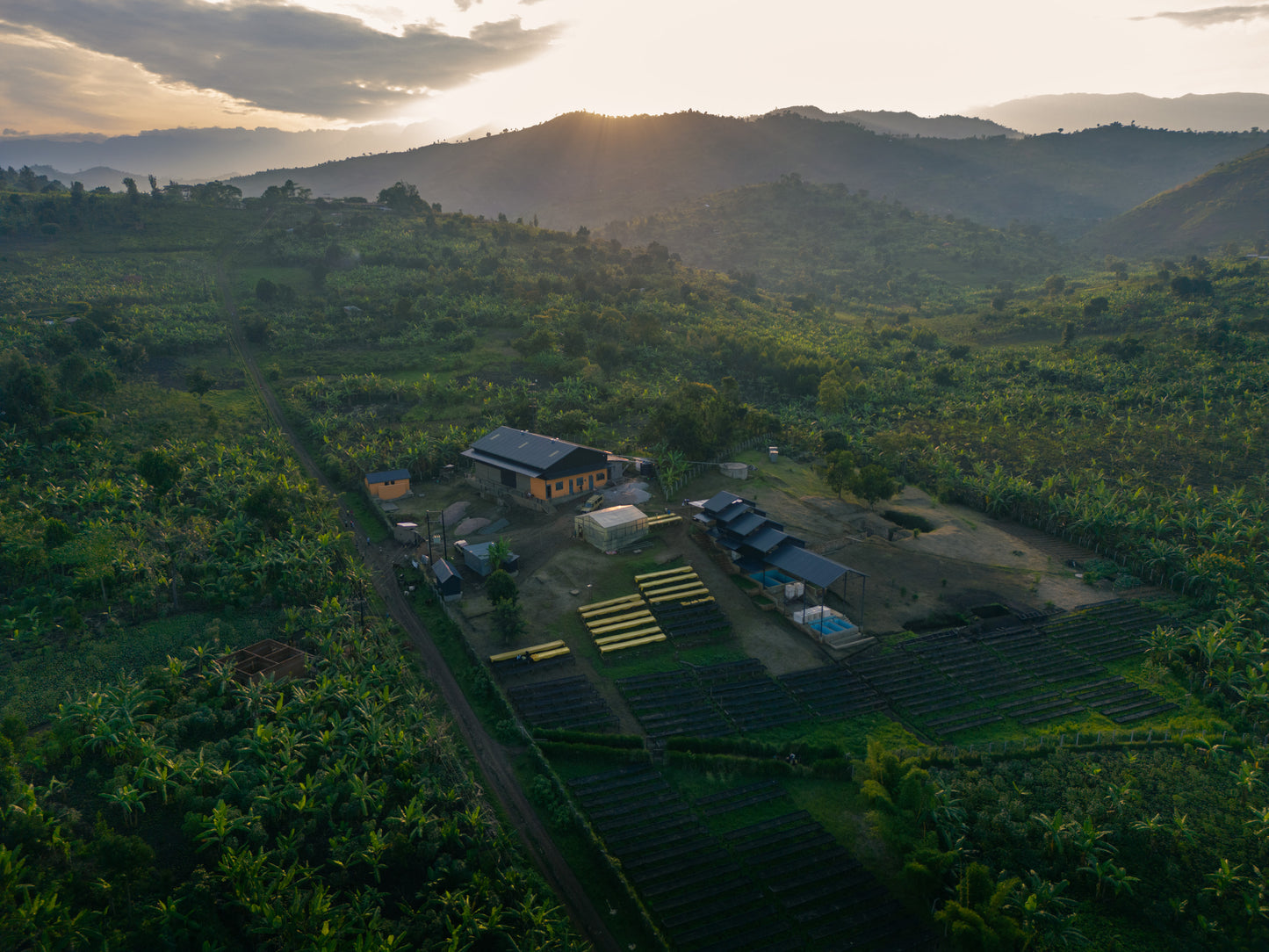
Brew Guide:
Best Brewed with: Filter
Light Roaster Influence: This lot was incredibly popping on the pre-shipment but hit a typical thing that can happen to Ugandan coffees where they land a little less vibrant than we'd like. To lean into this, we're developing this coffee a little more, chasing less sparkling acidity and more brown sugar sweetness and body, working with the coffee against.
Filter: 62g/L & 94°C, with rest can go down to 92°C
Espresso: 18g in, 40g out, 29-33s
Best rested for: 2-3 weeks
We're tasting: Hedgerow fruits and brown sugar aromas, in the cup there's dried cranberry, spiced crab apple jelly, lemon zest, & milk chocolate, with a balanced acidity and warm golden syrup sweetness. As it cools the fruit character persists with a hint of buttery shortbread, akin to rocky road
Traceability:
Country of Origin: |
Uganda |
Region: |
Western District |
Station: |
Lunar CWS |
Producers: |
350 smallholders on Buhweju hill |
Variety: |
Primarily SL-28 (very small amounts of SL-14 also) |
Elevation: |
Farm elevations - 1600 to 1800 MASL |
Process: |
Washed: Ripe coffees picked and delivered to Lunar CWS (either directly, or to LMCP "coffee scouts" - local buyers), with pre-selection, brix checking and sorting before pulping. During pulping, coffee is density sorted down channels into holding tanks. The pulped parchment coffee is dry fermented for 18-24 hr in shaded tanks, before soaking with clean water for 8 hrs, with the water refreshed halfway through. After this, the coffee is washed down grading channels (which use gravity to sort via density) whilst removing any remaining mucilage Dried on raised beds over 13-15 days |
Import Partner: |
Osito coffee via Long Miles Coffee Project |
Harvest: |
Crop 24/25 - Arrived UK: 08/25. New Purchasing Relationship |
The Story
Uganda is one of the largest coffee producers in Africa - but with 85% of that production being Robusta, it's always been a more commercial grade quality focus. Ugandan Arabica production has historically been categorised as "Wugar" (Washed Uganda Arabica) or "Drugar" (Dried Uganda Arabica), with Drugar especially associated with lower-quality commercial coffee due to strip picking, inadequate drying infrastructure, and high defect counts, with Ugandan coffee overall never quite reaching the same reputation despite being surrounded by excellent producing countries (to the east, Kenya, to the south, Rwanda, and to the North, South Sudan and the Boma plateau that is among coffee's natural evolutionary range). All the geographic conditions are there for excellence - and yet Uganda has been overshadowed in speciality by its neighbours.
Uganda's inability to realise quality potential stems from systemic logistical and bureaucratic barriers. As a landlocked country, all exports must transit through Kenya's Mombasa port, adding transport costs and quality risks during the 750 mile journey (Land's End to John o' Groats is 603 miles, for comparison) over frequently damaged roads. Processing infrastructure remains concentrated in commodity-focused facilities, while the 2024 dissolution of the Uganda Coffee Development Authority has created institutional uncertainty around quality standards and export procedures. Export processes require multiple bureaucratic approvals, creating delays that compromise coffee freshness and increase costs for quality-focused buyers.
But Uganda stands to benefit from the current market conditions - with coffee prices reaching historic highs and Brazilian coffees heavily tariffed to US commercial roasters, prompting diversified sourcing, Uganda's position as Africa's largest producer takes on increased strategic importance. But selling cherry for commercial prices, oft at a negative differential, might be good for the country - but for the smallholder farmers, oft with less than a hectare of production - those benefits do not trickle down.
Long Miles Coffee Project was founded by Ben and Kristy Carlson in Burundi in 2011,
developing operational models focused on farmer education, quality processing, and direct trade relationships. When Long Miles arrived in Burundi, the country's coffee sector shared striking parallels with Uganda today: smallholder farmers operating fragmented plots averaging less than two hectares, limited washing station infrastructure, and farmers receiving commodity prices regardless of cherry quality. Burundi's post-conflict recovery had left institutional capacity weakened, similar to Uganda's current bureaucratic uncertainties following the UCDA dissolution.
The smallholder experience in both contexts reflects systemic underinvestment in quality-focused infrastructure. In 2011 Burundi, farmers lacked access to processing facilities that could meet specialty standards, forcing them to sell cherry to intermediaries who prioritised volume over quality. Extension services were inadequate, leaving farmers without technical knowledge of optimal harvesting and post-harvest practices. This created a cycle where poor processing led to lower prices, which discouraged quality investments, perpetuating commodity-grade output despite excellent growing conditions.
Long Miles' Burundian operations addressed these constraints through integrated approaches: establishing washing stations with specialty processing capabilities, implementing year-round Coffee Scout programmes that provided technical training, and creating direct purchasing relationships that offered quality premiums. Their differential pricing systems incentivised selective picking and careful handling, while their processing infrastructure enabled farmers to access international speciality markets for the first time.
Following systematic evaluation across East Africa, Long Miles identified Uganda's Rwenzori Mountains as offering similar transformation potential. Establishing their "Lunar Station" in this historically peripheral region (although there has been great work by multiple importers to champion this particular region - we want to give a particular shoutout to Omwani coffee and Agri-Evolve on this front), they apply proven methodologies from Burundi to address parallel challenges: fragmented smallholder production, inadequate processing infrastructure, and limited market access for quality coffee.
Their Uganda operations employ the same Coffee Scout model, deploying local personnel as agricultural extension workers while operating multiple collection points with quality-based pricing. This approach transforms traditional wu/drugar processing through selective harvesting and controlled fermentation, while direct export relationships bypass bureaucratic bottlenecks that typically compromise quality and delay shipments.
Long Miles' model demonstrates how private investment can circumvent Uganda's institutional weaknesses.
By establishing processing infrastructure in previously neglected regions and creating direct market access, they enable farmers to capture premiums that government marketing channels have historically failed to deliver. As global commercial roasters diversify away from Brazilian supplies, Uganda benefits through two complementary pathways: increased commercial coffee revenues that fund infrastructure development, and specialty coffee sales that capture higher per-unit value. This dual approach means smallholder farmers benefit regardless of production quality - those producing commodity-grade coffee gain from elevated commercial prices, while those achieving specialty standards access premium markets.
- Choosing a selection results in a full page refresh.
- Opens in a new window.

